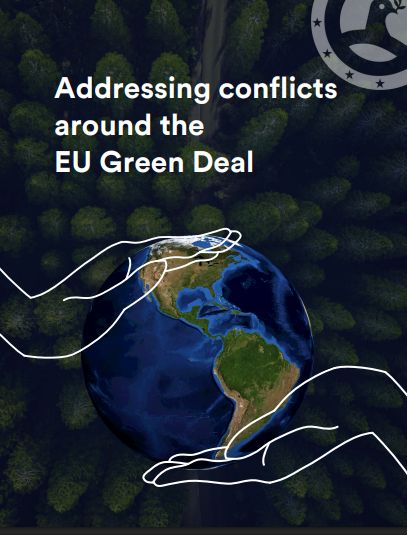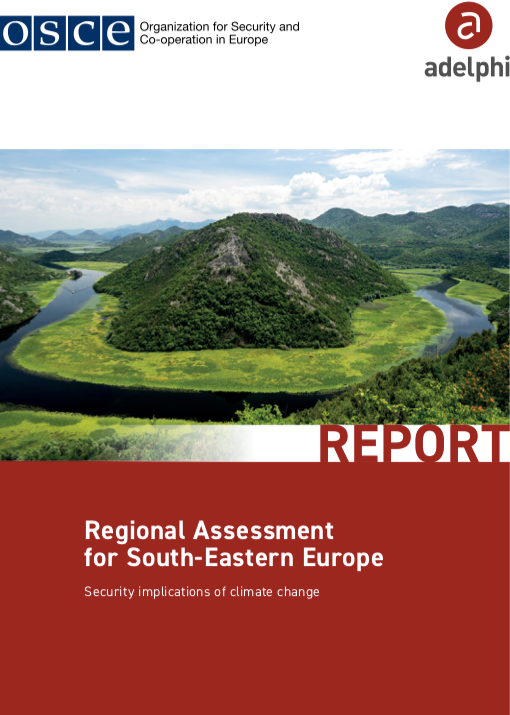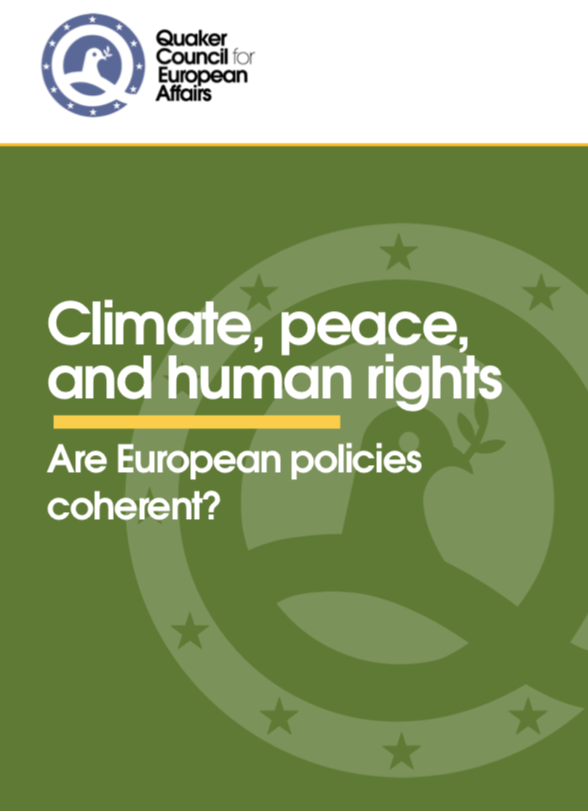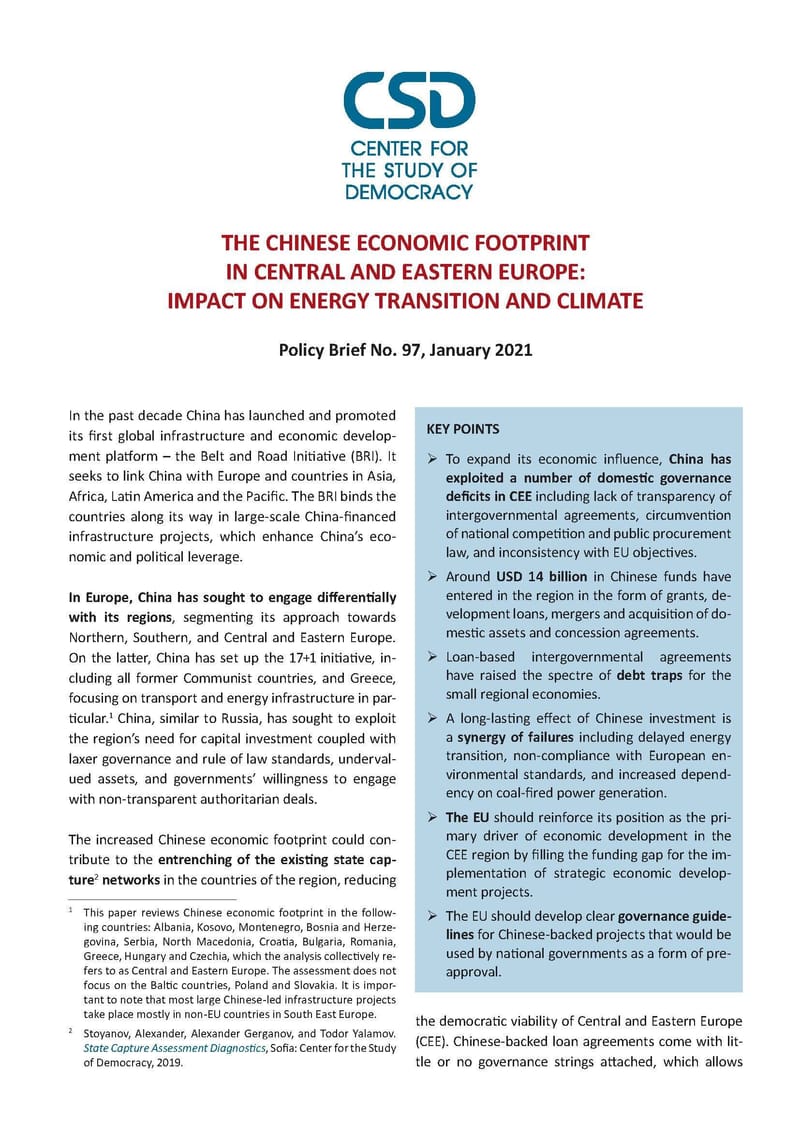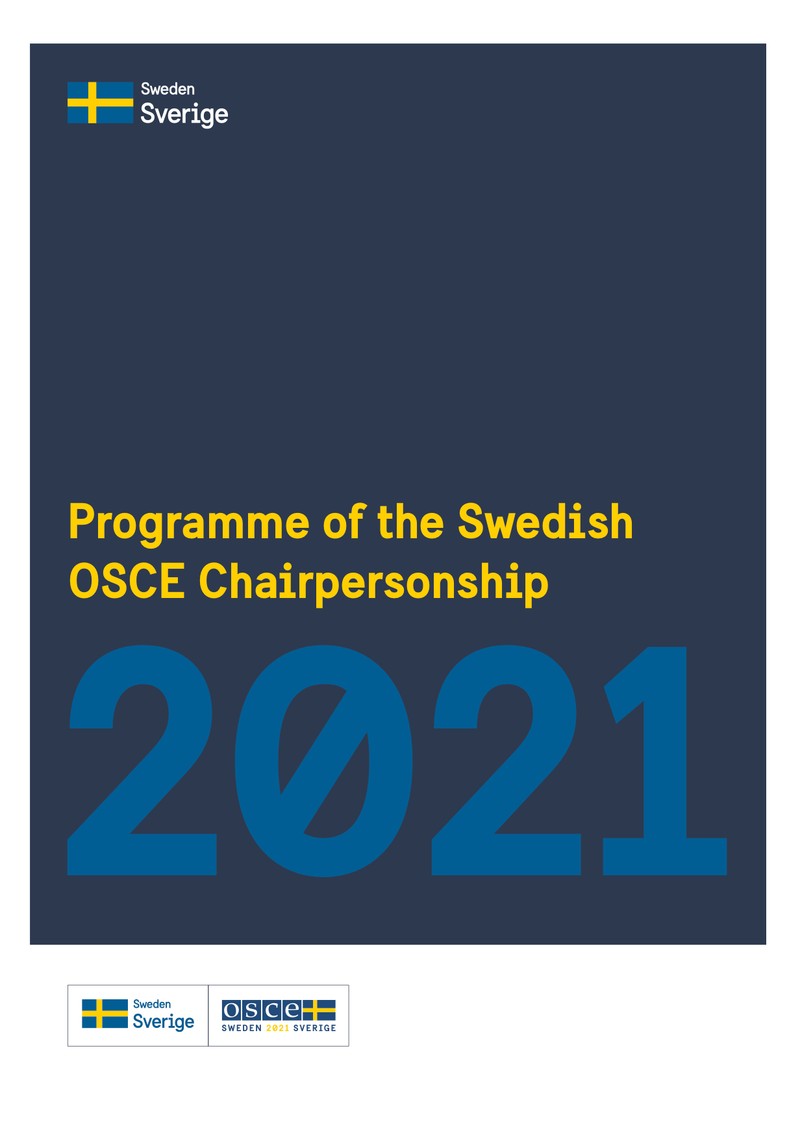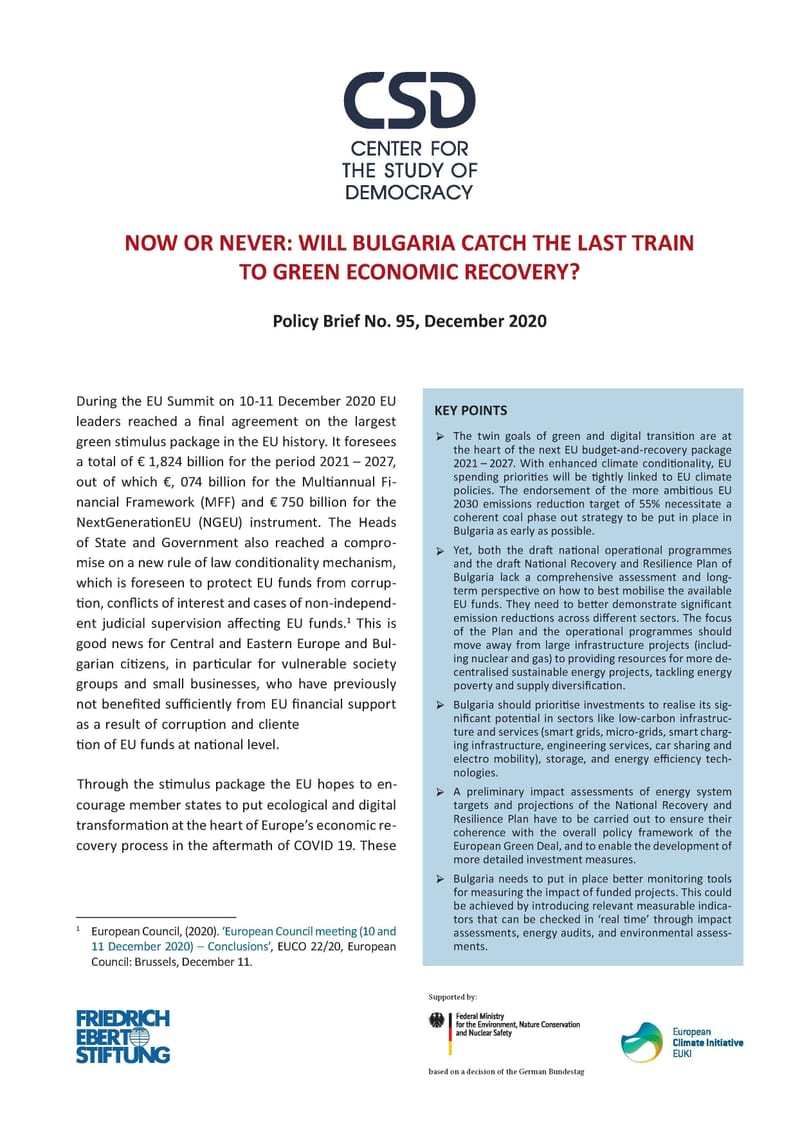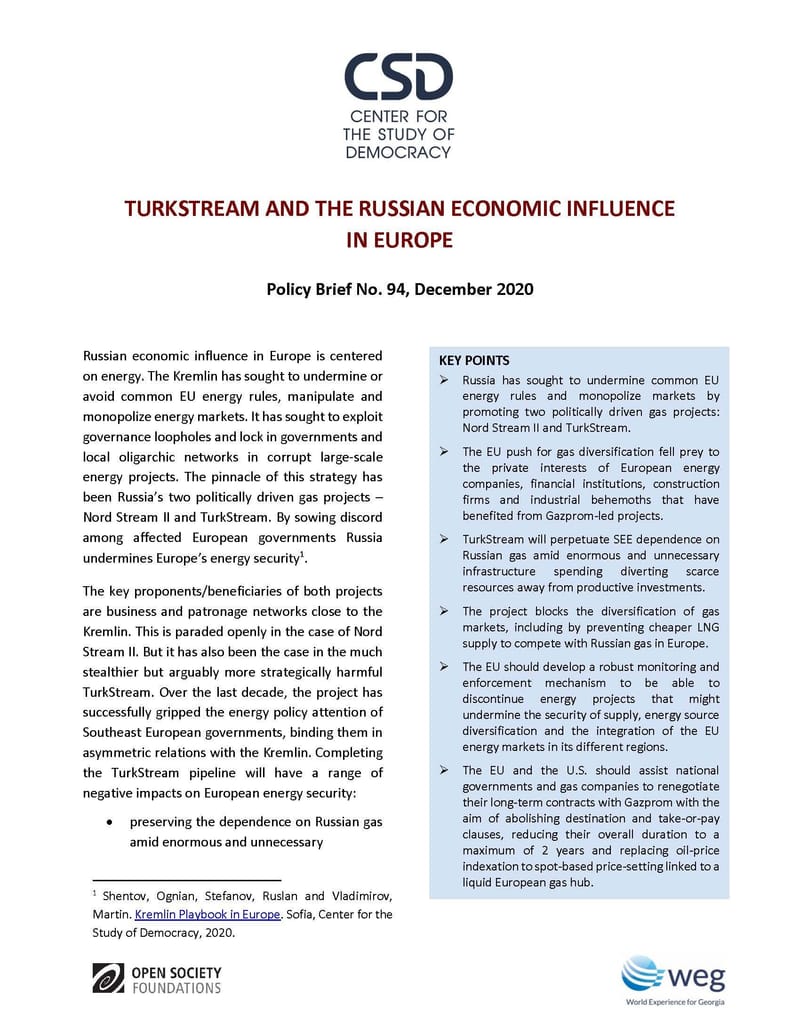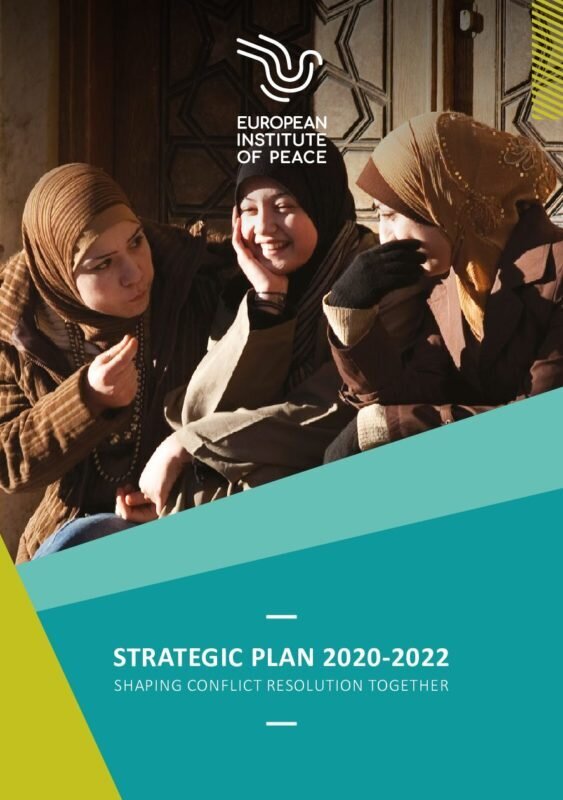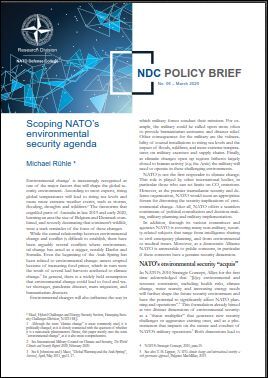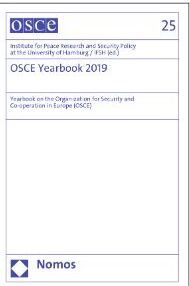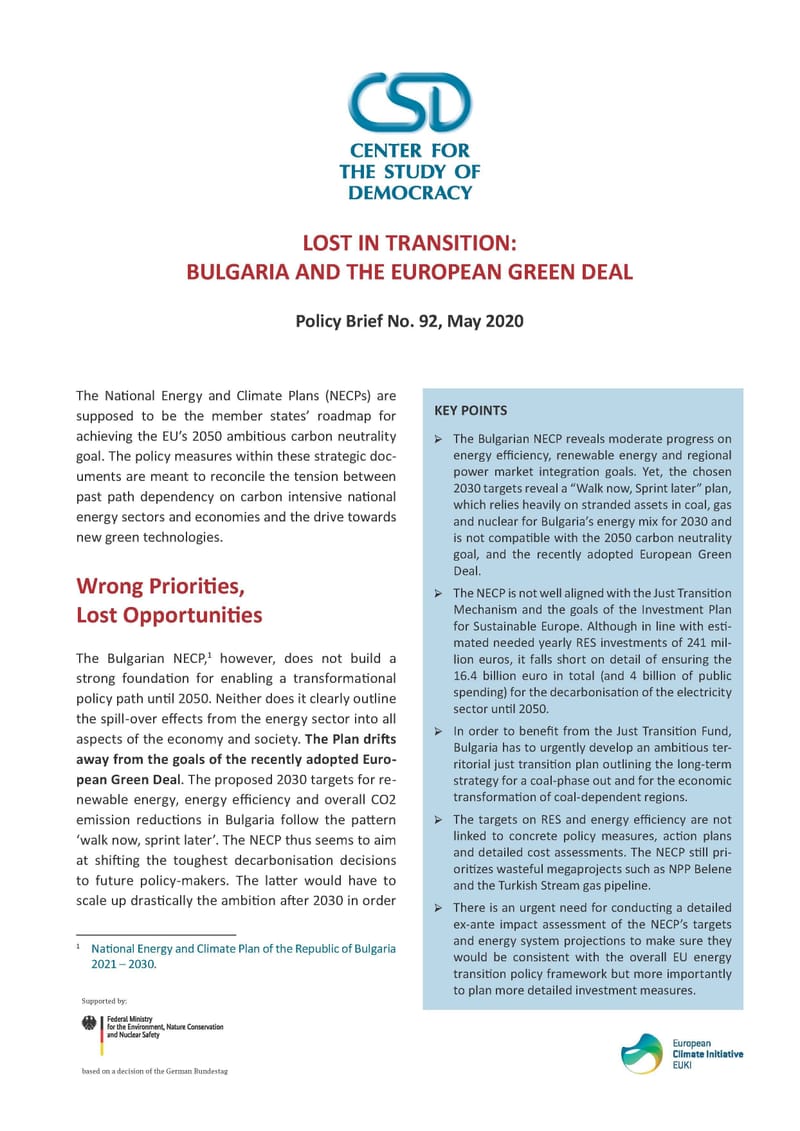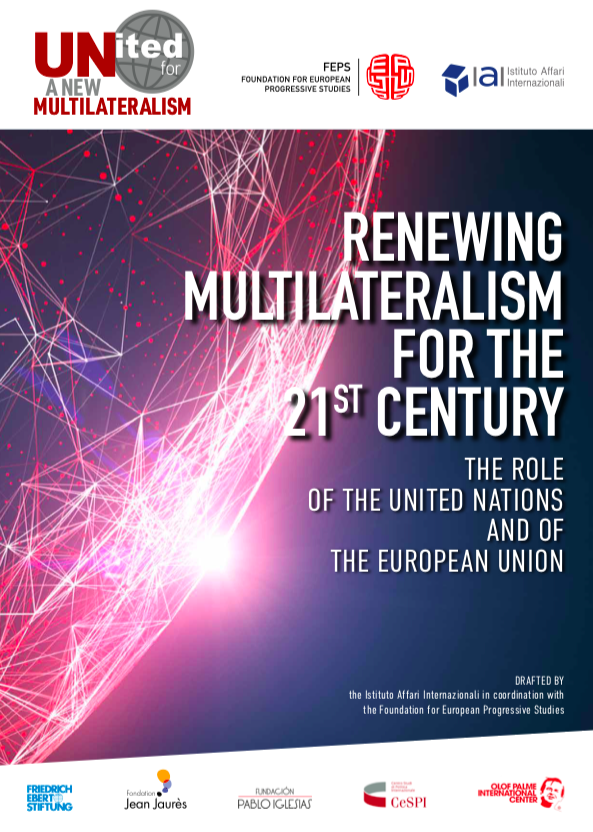Partner Publications
28 January 2025 - The European Union’s (EU) Green Deal is a crucial response to the escalating climate breakdown and environmental degradation crisis, but it must be implemented with a conflict-sensitive approach to mitigate social tensions and ensure sustainable outcomes.
Read MoreJoint report by the Organization for Security and Co-operation (OSCE) and the think tank adelphi engaging with the regional climate security challenges for South-Eastern Europe.
Read MoreReview and recommendation report by the QCEA on the EU policies coherency for climate, peace, and human rights
Read MoreThe Chinese Economic Footprint in Central and Eastern Europe:Impact on Energy Transition and Climate
Policy Brief by the CSD on Chinese economic impact on 12 CEE countries.
Read MoreThe Programme of the Swedish OSCE Chairpersonship 2021 aims to building resilient and more robust societies to counter threats to human security.
Read MoreThe policy brief by the CSD assesses the current strategy of Bulgaria to address a green and digital transition, advising more decentralized investments in sustainable energy projects, to tackle both energy poverty and supply diversification.
Read MoreIn this policy brief, the Center for the Study of Democracy sheds light on how the TurkStream gas pipeline perpetuates the CEE dependence on Russian gas amid unnecessary infrastructure spending diverting scarce resources away from productive investments.
Read MoreThe plan by the European Institute of Peace (EIP) covers the strategy to support conflict-sensitive responses to the social, economic and political impact of Covid-19 upon societies affected by conflict.
Read MoreWhile the causal relationship between environmental change and conflict is difficult to establish, there have been arguably several conflicts where environmental change has acted as a trigger. ... NATO is not the first responder to climate change. This role is played by other international bodies, in particular those who can set limits on CO2 emissions. However, as the premier transatlantic security and de-fence organization, NATO would seem an appropriate forum for discussing the security implications of environmental change.
Read MoreIn the OSCE, the discussion on climate change started at the same time as it did in the UN, and was referred to in a number of OSCE Ministerial Council Decisions and Declarations. Furthermore, the links between climate change and security were dis-cussed in various OSCE forums and addressed through dedicated projects, led by the Office of the Coordinator of OSCE Economic and Environmental Activities (OCEEA) and implemented together with its international partners and the OSCE field operations. This contribution provides an overview of the potential security implications of climate change, the international debate on this topic, and the OSCE response.
Read MoreThis policy brief analyses the main elements of the final version of the Bulgarian NECP and proposes targeted policy measures on how to better implement it over the next decade.
Read MoreRenewing Multilateralism is a joint report, let by the FEPS, which regards the necessity for a new, fair, and inclusive multilateral approach to take upon current and future challenges.
Read More